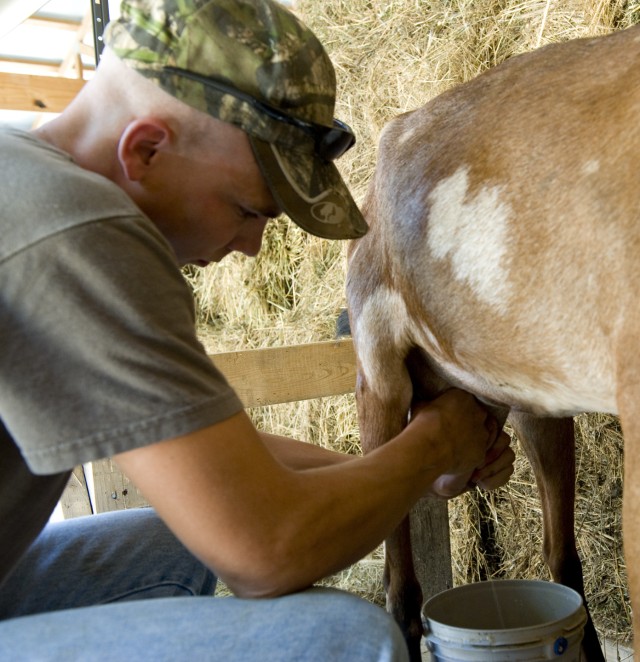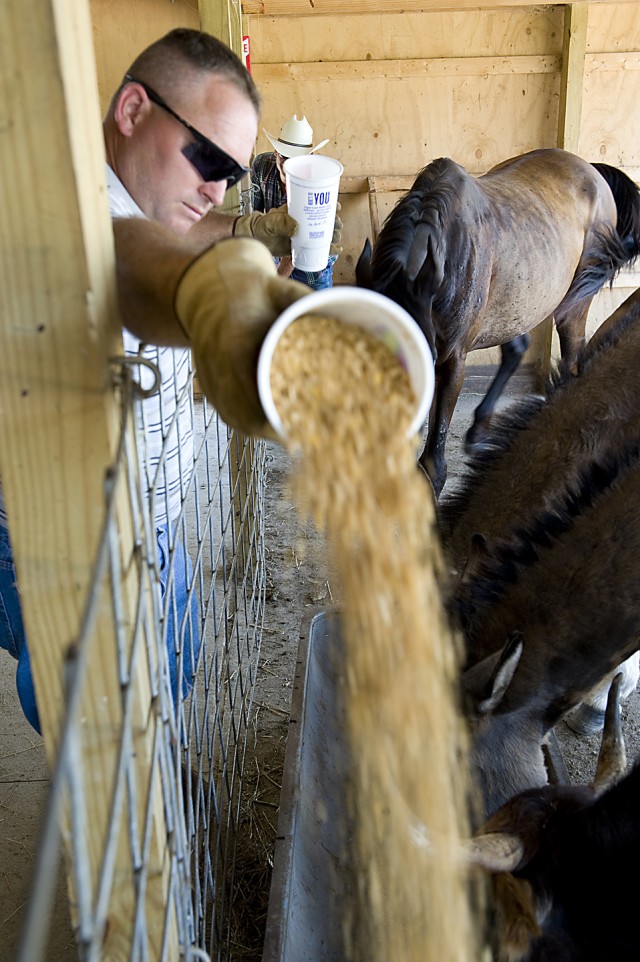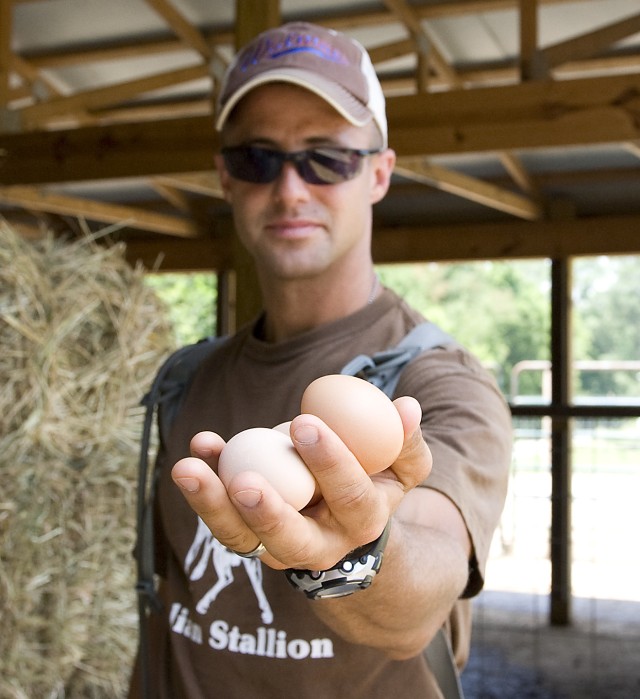BUTLERVILLE, Ind. (Army News Service, July 14, 2010) -- The goats are being milked, the horse is waiting to be fed and the barn cats are rolling around with each other in the afternoon heat.
Is this a scene at a family farm outside of town' Not exactly. This is an average day at the Indiana National Guard's Muscatatuck Urban Training Center Farm.
The farm was started just over a year ago in order to help train not only troops, but agricultural development teams who are headed to Iraq and Afghanistan. The farmer, Indiana National Guard Capt. Stephen Spencer, heard the agricultural training needs and created the farm from, literally, nothing.
"[The] purpose of the farm is to provide livestock for different training venues here at Muscatatuck to make it as real as possible," said Spencer. "A lot of Soldiers, they're not used to animals being around them and now they can confront them in a training environment so when they are overseas, they are better prepared."
The animals are used in training scenarios which duplicate Middle East environments such as a marketplace or an Afghan farmer's home. Both are places that Soldiers and civilians training side-by-side will find themselves in when stationed at overseas facilities.
Training at Muscatatuck already involves Afghans who act as the local populace. Adding the animals becomes just another layer in the training cycle.
"We can put the goats and donkeys [in the training venue]," Spencer adds. "The donkeys can pull a cart and all of that just adds realism. They're just stepping into a little piece of Afghanistan versus southern Indiana."
Though the animals are used as training aids, they are well-kept and cared for by a team of five Soldiers whose sole job is to work the farm. Each day, the animals are fed twice and let out to graze. The Soldiers who work the farm are on-call 24/7, 365 days a year since the animals don't get holidays and weekends.
The Soldiers arrive before sunrise to start their work on the farm and care for the animals, many of which were former family pets given to the farm when they became too big to be kept in a house.
Sgt. Stephen Struewing, the noncommissioned officer in charge of the farm, could not imagine having any other job.
"I love it. It's the best job I've ever had," Struewing exclaims. "We get out here early and first thing is maintenance, some clean-up, and basic farm chores. Feeding, cleaning. Then we usually send the animals off, send some out in the field, and watch others as they're put out to graze."
The animals, however, are not the only aspect of the Muscatatuck farm. Recently, Spencer and his crew mowed a field of hay, producing enough hay to keep the farm running until the next season. They have also planted and now care for several gardens, plots of corn, two green-houses worth of various plants, an orchard with fruit and nut trees and a grape arbor.
The Muscatatuck farm is quickly becoming self-sufficient and sustaining. By the fall, they will even be producing soap made from the goat's milk they get every day.
The larger aspect of the farm is the overall agricultural development training done by teams deploying overseas. Agriculture specialists train to assist Afghan farmers in techniques they can use to increase crop production and stimulating their economy. The Muscatatuck farm allows them to practice their trade.
"That's another sideline of this, the agri-business development teams come here," Spencer said. "They can actually practice hoof trimming. They can practice giving their vaccinations on our livestock. They can do their evaluations on animals that are military owned versus civilian owned."
They also learn what plants do best in what climate and how to care for the plants. They have also recently added bee-keeping and will be starting an aqua-culture center featuring tilapia fish farming. Agriculture teams can come to Muscatatuck and meet all of their training requirements.
The farm at MUTC is a force-multiplier that adds value to any training which takes place at the facility. Struewing said it also makes at least five Soldiers happy to come to work each day.
"I just like the physical aspect of it and not being behind a desk in a stuffy office," Struewing says as he looks up to the sun. "That's best for me and the people we work with are all outside people, too, so it's good to be outside."
(Staff Sgt. Brad Staggs writes for MUTC Public Affairs)






Social Sharing